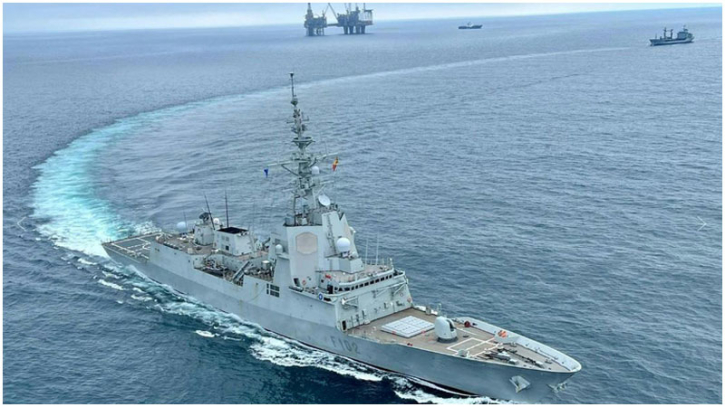NATO to boost military presence in Baltic Sea

NATO military presence in Baltic Sea
The North Atlantic Treaty Organization (NATO) will boost its military presence in the Baltic Sea, Polish Prime Minister Donald Tusk announced.
In his remarks following a meeting with NATO chief Mark Rutte on Tuesday, he said: "In light of the strange incidents involving Russian and Chinese ships, and damage to undersea installations in the Baltic Sea, which greatly concerned all the countries in the region, we proposed that the Baltic Sea sees an increased military presence from local NATO allies, following the example of protecting our airspace, and the alliance’s secretary-general told me they will work on this idea immediately,” according to public broadcaster TVP.
Baltic Sea incidents
The Baltic Sea has been the scene of several high-profile infrastructure incidents since the onset of Russia's war on Ukraine in February 2022, which heightened tensions in the region.
The latest incident follows the October shutdown of a Finnish-Estonian undersea gas pipeline after the anchor of a Chinese cargo ship reportedly damaged it.
Last month, two telecommunications cables linking Sweden and Denmark were severed. Authorities suspect the Chinese vessel Yi Peng 3, which sailed over the cables, while China denied Sweden's request to investigate the ship.
The Arelion submarine cable, which connects the Swedish island of Gotland to Lithuania, and the C-Lion 1 submarine communications cable that runs between Finland’s capital Helsinki and Germany’s Rostock city were also damaged in mid-November near Sweden's territorial waters.
European officials have suggested that sabotage could be behind the recent disruptions, potentially linked to Russia’s ongoing war on Ukraine. But the Kremlin has rejected the claims, calling them “absurd.”
The September 2022 explosions that ruptured the Nord Stream pipelines carrying Russian gas to Europe remain unresolved, underscoring the region's vulnerability to undersea attacks on key infrastructure.
Authorities across the Baltic region continue to investigate these incidents amid heightened vigilance as geopolitical tensions show no sign of abating.
.png)




